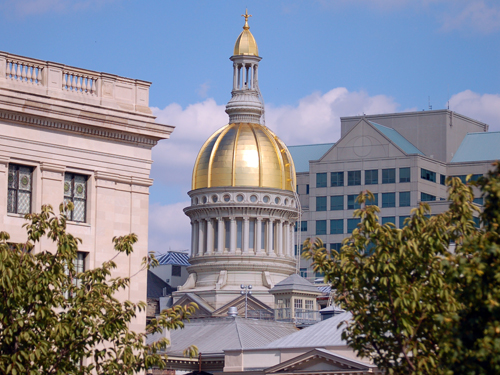New Jersey Future Blog
Taxes Chasing People Out of New Jersey – But Which Tax? And Which People?
February 10th, 2010 by Tim Evans
Last week, the Center on Wealth and Philanthropy at Boston College released Migration of Wealth in New Jersey and the Impact on Wealth and Philanthropy, a study indicating that New Jersey has experienced a net loss of wealth since 2004 as a result of high-wealth households moving out of the state and not being replaced as steadily by new wealthy in-migrants as they were earlier in the decade.
While the study declined to speculate on the reasons for the mid-decade shift from a net wealth gain to a net wealth loss, some commentators leaped at the opportunity to attribute the exodus to New Jersey’s tax policies, notably the income tax. This might be an example of leaping before looking.
Fortunately, Tom Moran of the Star-Ledger has responded with a reality check, including a reminder from the study’s author himself that there are likely multiple factors at work. And New Jersey Policy Perspective helpfully reminds us of the distinction between wealth and income, pointing out that if we look at income rather than wealth, New Jersey has actually been gaining high-income households faster than we’ve been losing them. The argument that income taxes are chasing wealthy people out of New Jersey is not as cut and dried as it might seem on the surface.
In fact, if New Jersey wants to worry about taxes chasing people out, maybe we should be looking at the middle and working classes rather than the wealthy — and maybe we should be worrying about the property tax rather than the income tax. A 2006 New Jersey Future report on county migration patterns in the latter half of the 1990s found large numbers of households moving from New Jersey to eastern Pennsylvania, which is not exactly famous as a tax haven. Census journey-to-work statistics indicate that many of these eastern-PA refugees continue to commute back to jobs in New York City or northern New Jersey. So why are they moving to Pennsylvania and enduring long commutes?
High property taxes are probably one factor, driven by our fragmented public school system and the duplicative costs that it engenders. But it’s not just the property tax bill itself that’s the problem — it’s the warped land-use decisions that our over-reliance on property taxes induces municipalities to make. To avoid having to raise property taxes and put itself at a competitive disadvantage, each municipality has an incentive to minimize the number of new school children it allows in the door. This means minimizing the number of new homes that can be built on a given piece of land. Developers, when faced with large-lot zoning that deprives them of the ability to sell more but smaller homes, thus opt to build the biggest homes they think the market will bear, in order to extract the maximum value from the artificially limited number of housing units they are allowed to build. The net result is a constricted housing supply that is geared toward the upper end of the market and that prices renters and first-time home-buyers out of large swathes of the state.
To make a long story short, if New Jersey wants to avoid chasing people out of the state, how about we finally try to tackle our over-reliance on property taxes, and, in the process, enable municipalities to make better land-use decisions?
Related Posts
Tags: Income tax, Land use, Migration, Property tax















